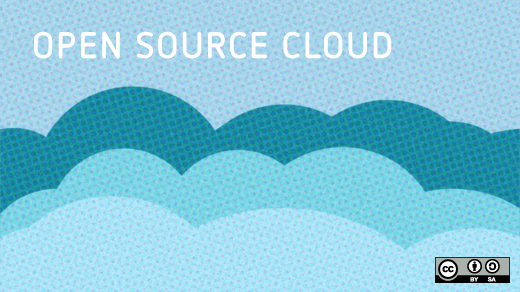The cloud is a big place. There's no one technology, no one source of information, and no one topic that can cover everything. But to me, that's what is exciting about it. It's a place where having a multidisciplinary background is not only helpful, it's essential.
Learning about the cloud can involve programming and development work, the ins and outs of specific hardware, being able to administer a full stack of software from the operating system all the way up to a user-facing application and every layer that falls between. It's also a lot about business about entrepreneurship and understanding how to succeed in a rapidly growing and rapidly changing environment.
Fortunately, many of technologies critical to these areas are open source, making it easy for beginners to get started. But it never hurts to have some guidance to help you on the path to aquiring new skills. So without further ado, here are 10 courses touching on various aspects of the open source cloud, all freely available.
Programming & development
There is no one "right" language to learn if you're learning about the cloud. A tool stack might consist of applications written in dozens of different low level and high level programming languages working together, deployed and managed using a declarative orchestration tool's language, providing queries to database in a SQL variant, serving up webpages in CSS, HTML, and JavaScript. So I'll list some resources for Python, which I recommend as an easy-to-learn language that's also incredibly powerful and shows amazing versatility in its use in the cloud. OpenStack, as a prominant example, is primarily coded in Python. But really, learning any modern programming language is probably going to pay off in some way in the cloud.
To learn Python, I recommend taking a look at An Introduction to Interactive Programming in Python taught by Rice University through Coursera. One especially cool thing to me about it is that it uses a browser-based Python interpretor which means that you don't even have to install anything on your system to get started. Google and Codecademy also have free beginners-level courses that are worth checking out. I'm also partial to Learn Python the Hard Way, which we profiled in our annual reading list. While not a course per-say, it reads like a self-paced course and it's freely available online, though buying a full copy of the book and access to the videos will only run you US $29.59.
Also worth mentioning are a pair of UC Berkeley courses, available online through EdX, entitled Software as a Service and Engineering Software as a Service. These courses, taught to the Ruby on Rails platform and focuses not just on the technology itself but on agile development methodologies for continuous release design.
Systems & infrastructure
The open source cloud runs on Linux, and so if you're not familiar with Linux, you need to be. Fortunately, edX and the Linux Foundation have a course for that. Learn with our own Jen Wike, who is profiling her experience with the course so far.
You'll also probably want to learn a thing or two about networking and security. MIT's OpenCourseWare program has a number of classes on this topic. Some of the material here is a bit older, but the basic underlying concepts are still valuable today.
Interested in big data? Then you'll probably want to learn something about Apache Hadoop. HortonWorks, who also offers paid training, has a great free introductory course that is led through a virtual installation of Hadoop on your own machine in a sandboxed environment.
Business & entrepreneurship
Last but not least, let's step away from the technical side of the cloud for just a moment and take a look at the business side. One of the great things about the rise of the cloud (and of open source) is that they accelerate the pace of innovation by removing barriers to entry that would have made getting started in many arenas of business prohibitively expensive for newcomers just a few years ago.
Along this path, one great course that I really enjoyed taking last year was Startup Engineering, a MOOC offered by Stanford University through Coursera. What I liked most about it was that it integrated the business side with the technical and took you through tools and frameworks and wireframing at the same time as marketing and promotion and accounting. While the course doesn't have any future sections scheduled at this time, all of the course materials are still available online for you to browse at your own pace.
What next? In addition to university courses, there are a number of vendor specific courses and training sessions to help you along your way. For instance, those offered by the Red Hat Training program, but there are of course lots of other options out there as well, in addition to those provided by neutral bodies like the Linux Foundation.
More resources: What is open education? and Youth using open source (a free eBook).








Comments are closed.